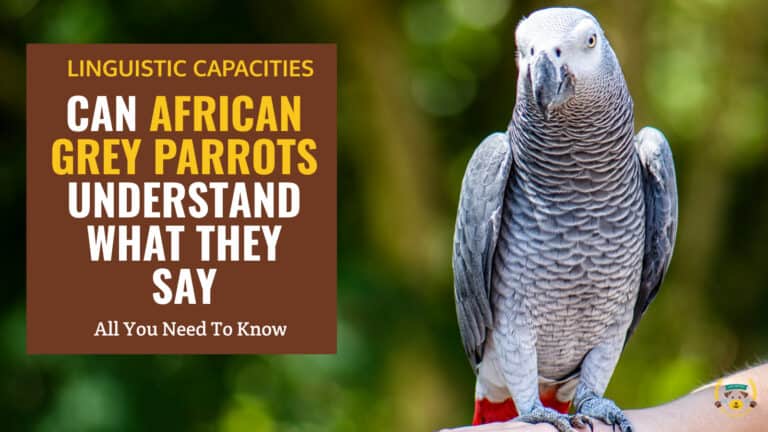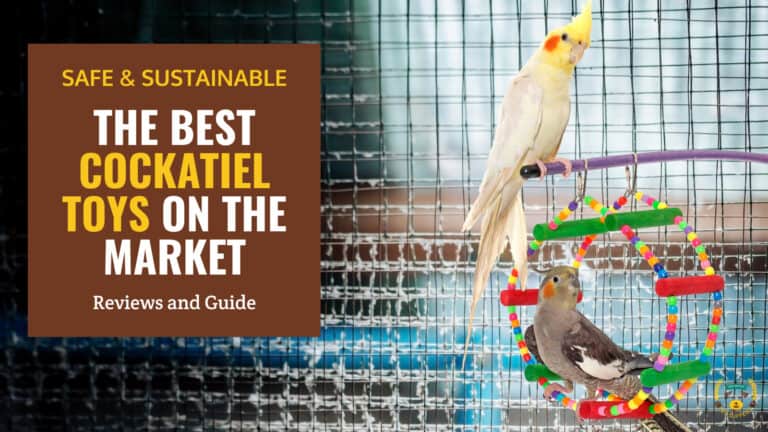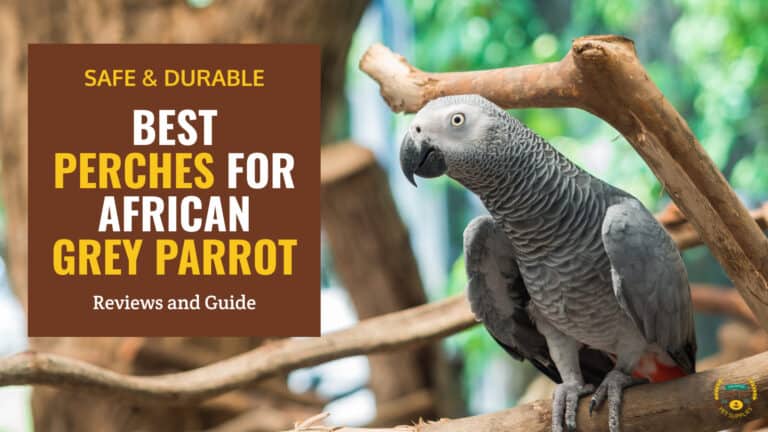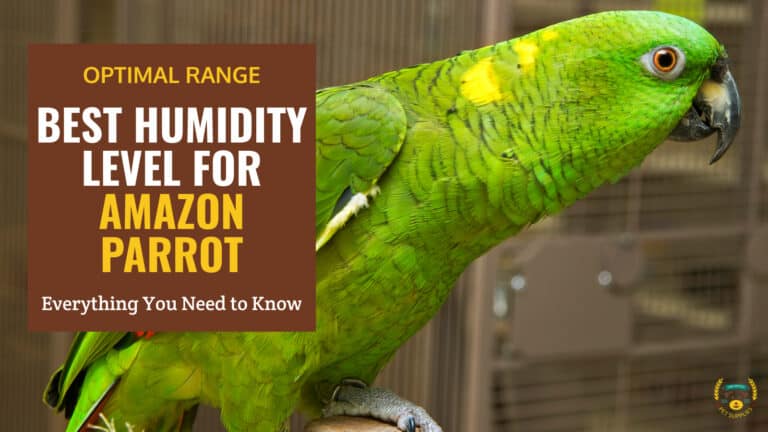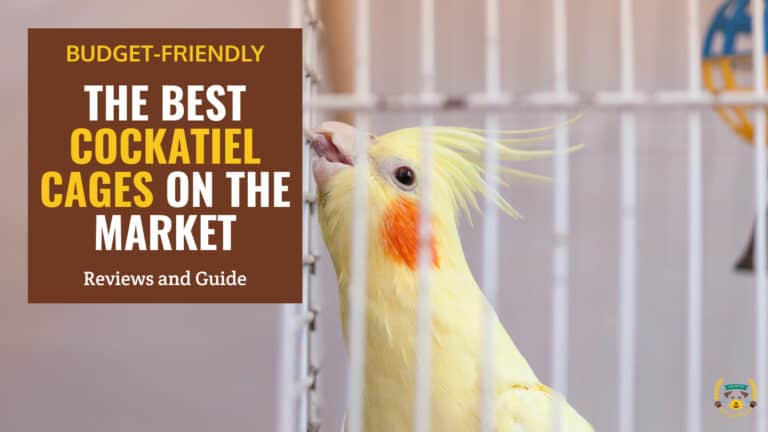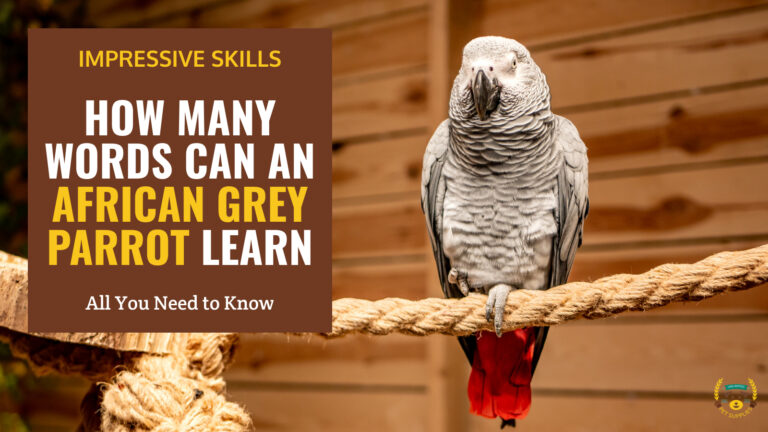How Long Does a Cockatiel Live in Captivity?
Last updated: January 29, 2024
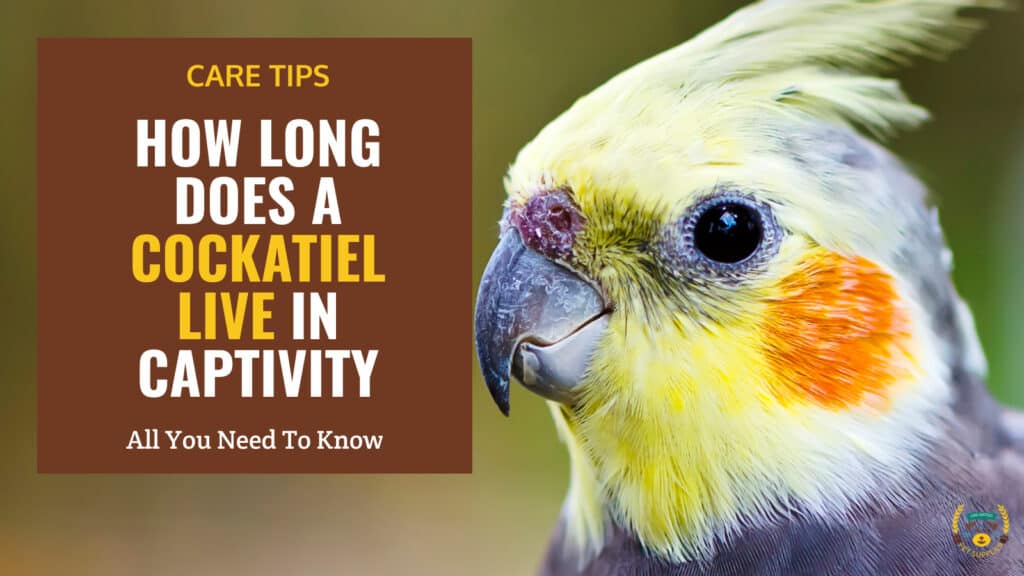
Summary
- Domestic cockatiels live 10-15 years on average; exceptional care can extend this to over 30.
- Longevity depends on diet, space, healthcare, and stress management.
- Recognize aging by activity decline and vocal patterns.
- Senior care involves dietary support and a comfortable, warm habitat.
- Genetics impact lifespan; choose birds from health-focused breeders.
- Common old-age ailments include arthritis and organ issues.
- Consider euthanasia for chronic pain or life-quality decline.
Cockatiels are a popular bird for pet owners due to their intelligence, easy care requirements, and personable nature.
In their native Australia, wild cockatiels have typical lifespans between 15 to 20 years. With attentive pet ownership, ample cage space, a balanced diet, routine veterinary care, and environmental enrichment, domestic cockatiels tend to comfortably exceed this range. These captive birds have registered record lifespans over 30 years, with averages from 10-15 years.
What enables such long lives? While genetics influence longevity, controllable factors like preventative healthcare, diet, exercise, and stress reduction can give cockatiels more healthy years.
In this article, we will explore the captive lifespan of cockatiels more deeply - from typical ranges, comparison to wild birds, daily care tips, common aging issues, assessing quality of life, and other helpful wisdom to gain more years with a cockatiel companion.
- 1) Typical Lifespans in Captivity
- 2) Providing Proper Care
- 3) Genetics and Early Health Screening
- 4) Signs of Aging and End-of-Life Care
-
5)
Frequently Asked Questions
- 5.1) How can I maximize my cockatiel’s lifespan?
- 5.2) What health issues commonly impact senior cockatiels?
- 5.3) When should euthanasia be considered for a cockatiel?
- 5.4) How much do genetics factor into a cockatiel’s lifespan?
- 5.5) How can you tell if your cockatiel is considered elderly?
- 5.6) What emergency first aid supplies should cockatiel owners have on hand?
- 6) Final thoughts
Typical Lifespans in Captivity
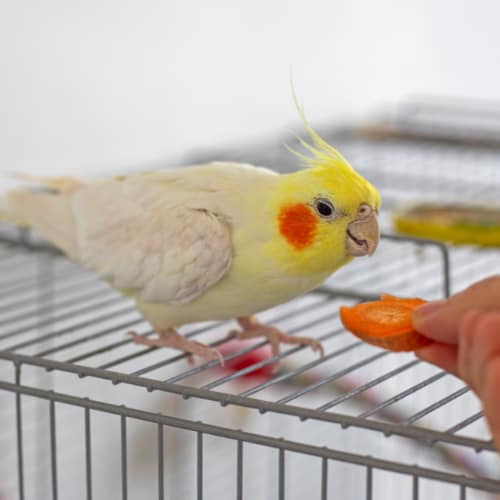
So what ranges can caretakers expect for their cockatiel's lifespan? While averages fluctuate based on factors explored later, most pet cockatiels live between 10-15 years given proper care and a healthy early start. However, with attentive ownership, genetics, regular vet checks, and a bit of luck, lifespans of 15-25 years are readily achievable.
Common Lifespan Ranges
In captivity, cockatiels commonly survive to 10-15 years old. This covers a majority of pets based on available data. With exceptional care from a young age onward, plus ideal genetics, 25-30-year lifespans are possible.
Records for Oldest Captive Cockatiels
While not typical, some well-cared-for cockatiels have exceeded 30 years of age. The oldest confirmed cockatiel reached 36 years - quite elderly for the species! These outliers benefited from excellent nutrition and healthcare, in addition to likely genetic advantages.
Currently, the oldest Cockatiel alive today is Frankie, from South Salem, New York. This bird was confirmed to be 31 years of age on 13 March 2023.
Comparison to Wild Cockatiel Lifespans
Research shows wild cockatiels in Australia live between 15-20 years on average. So while exceptional captive cockatiels live longer, most pets reach equivalent ages to their wild counterparts. The controlled environment allows captive tiels to better avoid predators, famine, extreme weather, and disease.
Providing Proper Care
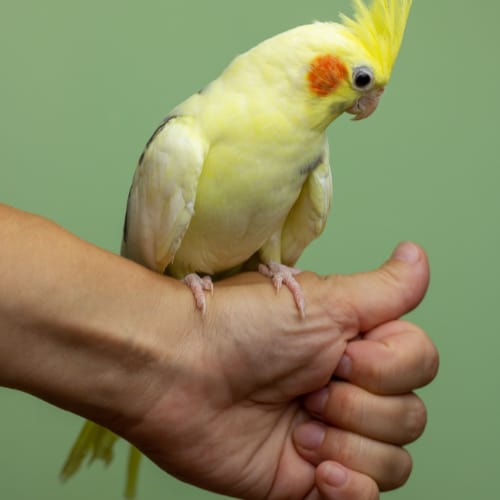
To help ensure a long, healthy life for a cockatiel, providing proper daily care is essential. The following are recommendations for diet, cage setups, social interaction opportunities, and other care considerations.
Diet and Nutrition
High-quality nutrition supports cell health and immune function for increased longevity. Experts recommend:
- A primary pellet diet with veggies, fruits, healthy people foods
- Calcium and vitamin supplements 2-3 times weekly
- Fresh, filtered water always available
Avoid seed-only diets, which can cause liver/kidney issues and obesity over time. In addition to these general guidelines, if you are seeking foods and diets for your parrot, we have compiled an extensive list that will not only satisfy your parrot's taste buds but also contribute to their overall health.
Beyond diet and nutrition, another aspect of caring for your feathered friends is providing them with a safe and peaceful environment to feed. Many bird enthusiasts face the challenge of clever squirrels pilfering from bird feeders, which not only deprives your birds of their food but can also lead to unwanted mess and expenses.
To protect your bird feeders from these persistent critters, it's worth exploring some options. For insights and recommendations on feeders that stand up to the test, consider reading our in-depth analysis of top squirrel-proof feeders. This can ensure that your birds—and not the squirrels—reap the benefits of the nutritious meals you provide.
Cage Size and Environment
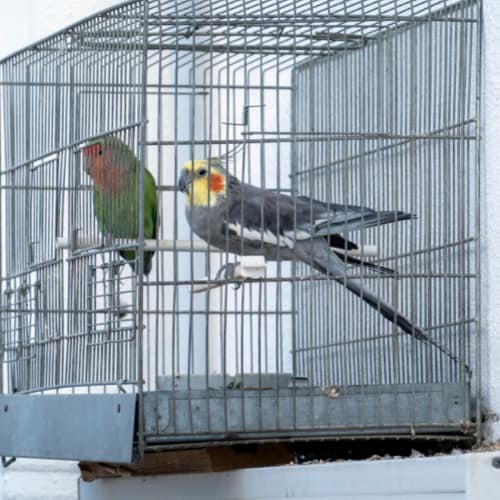
Selecting a convenient bird cage is crucial for the well-being of a cockatiel. They are active birds and require ample space for exercise and environmental enrichment. Here's what you should consider when looking for the right bird cage:
- Cages should be around 20” W x 20” D x 30” H minimum per bird
- Several perches and toys should be included and changed weekly
- Opportunity to spread wings fully
- Natural wood branches and shredding materials
Bigger is better for accessing sunlight, exploring, climbing, and replicating wild behaviors.
For a more detailed guide on the best housing options for your cockatiel, be sure to check out our comprehensive cockatiel cage reviews.
Social Interaction and Bonding
Providing frequent social interaction and bonding opportunities is vital for a cockatiel's mental health and quality of life in captivity. Cockatiels are intelligent, playful birds that thrive when given consistent daily attention and activities for mental engagement.
At the very minimum, a solo pet cockatiel should be allowed out-of-cage interaction with owners for several hours per day. This time can consist of direct handling, talking/whistling with the bird, offering the right cockatiel toys and puzzles, clicker training, or allowing the cockatiel to perch or explore its environment under supervision.
For flock-oriented cockatiels, housing male/female pairs or larger bonded groups together in sizeable aviaries can also suit their social requirements. Flock bonding provides dynamic interaction, opportunities to forage and exercise wings, and satisfies innate mating/nesting behaviors. Cockatiels housed together will keep each other company when owners are away.
That said, even aviary-housed cockatiels should still receive individualized human interaction daily. Over time, consistent positive interaction with owners enables cockatiels to form close companion bonds - especially if acquired young or hand-fed.
An enriching social environment - whether through animal companionship, human interaction, or both elements - keeps captive cockatiels active, engaged, and psychologically healthy.
Genetics and Early Health Screening
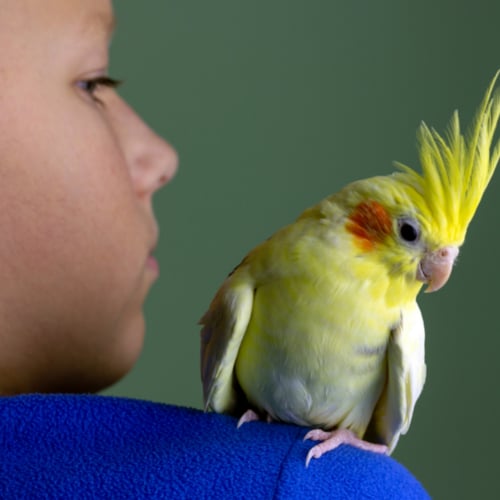
A cockatiel's inherent genetics and overall health early in life impact lifespan significantly. Responsible avian veterinarian care also provides major benefits.
How Genetics Influence Longevity
Selective breeding for desired mutations can inadvertently introduce problematic recessive genes or weaken immunity over generations. Issues include:
- Higher cancer predispositions
- Increased organ vulnerabilities
- Reduced genetic diversity
Sourcing cockatiels from quality breeders focused on health over aesthetics is ideal. Ask about parent/grandparent ages before buying a specific bird.
Importance of Veterinarian Well Checks
Initial and regular checkups enable early diagnosis and prevention of illness and establish needed baselines for aging birds. Well visits include:
- Overall physical exam and pre-purchase exam
- Baseline complete blood count and disease testing
- Microchipping for ID and DNA sexing
- Lifelong monitoring for concerning changes
Annual exams through age 15, bi-annual exams beyond detect issues early when treatments are most effective. Prevention saves costs long-term.
Signs of Aging and End-of-Life Care
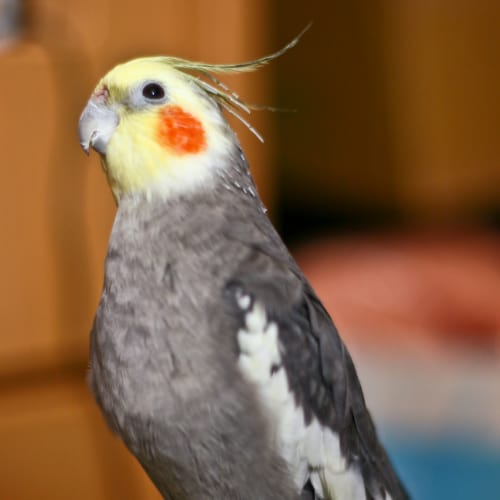
Recognizing symptoms of aging allows for adjustments to better support elderly cockatiels. We will also cover end-of-life considerations. These will help you adapt care to your bird's current health and age.
Gradual Changes Over Time
Subtle shifts that signal organ decline and cellular damage accumulation include the following:
- Decreasing activity levels
- Feather issues like breakage or poor regrowth
- Changes in droppings (becoming more loose, watery and greenish)
- Arthritis symptoms of limping/stiffness
- Reduced vocalizations or withdrawing socially
Providing Care in Final Years
There are certain steps you can take to promote comfort in aging pets:
- Switch to a joint supplement diet for added nutritional support against arthritis and muscle stiffness
- Cover cage sides for increased privacy and feelings of security when resting
- Ramp/limit climbing areas in the cage to prevent dangerous falls
- Increase ambient temperatures near the cage to 80-85°F to aid musculoskeletal comfort and circulation
- Offer massage and range of motion conditioning, including motion exercising, wing fluffing, and feather grooming
Working closely with an avian vet helps adjust care as needed.
Quality of Life Assessment
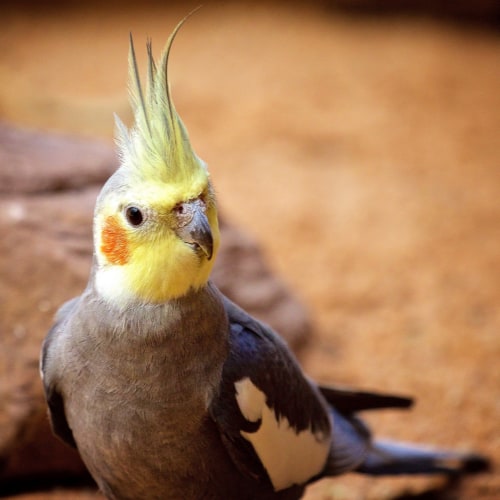
Determining appropriate euthanasia timing remains a deeply personal decision for bird owners. It requires weighing numerous factors of overall health and wellness in aging pets.
Begin by objectively gauging mobility enthusiasm levels by asking the following questions:
- Can the cockatiel still fly/climb on its own strength?
- How frequently does preening grooming occur?
- Does the bird move and vocalize less even with attempted interaction?
- What is the consistency of urates/feces - are they watery or discolored indicating organ trouble?
Digestion issues like decreased appetite should cue hormone level evaluations. Finally, the willingness and energy level to reciprocate human bonding attempts can signal an emotional state.
If these collective metrics reveal a pattern of more "bad days" riddled with discomfort, dysfunction, isolation, or stress despite augmented care - euthanasia may ultimately provide a peaceful, dignified final release from suffering.
Frequently Asked Questions
Let's now provide answers to the most commonly asked questions about cockatiels' lifespan and care to equip you with all the necessary knowledge to take good care of your beloved pet.
How can I maximize my cockatiel’s lifespan?
Lifespan extensions stem from proper preventative care - high-quality diet, exercise/enrichments daily, annual vet exams to catch issues early, avoiding harmful toxins, and providing good sleep conditions.
What health issues commonly impact senior cockatiels?
Older cockatiels frequently suffer from arthritis, overgrown beaks/nails, cataracts, fatty tumors, gastrointestinal issues, kidney/liver dysfunction, sinus infections, stroke, and respiratory infections.
When should euthanasia be considered for a cockatiel?
When multiple age-related health problems accumulate causing frequent distress - immobility, pain, poor feathering, digestive dysfunction, isolation from flock/humans - euthanasia prevents further suffering.
How much do genetics factor into a cockatiel’s lifespan?
Genetics significantly influence lifespan averages. Responsible, selective breeding for health/longevity over aesthetic traits produces more vigorous, disease-resistant lineages.
How can you tell if your cockatiel is considered elderly?
Indicators of old age include greying feathers, muscle wasting/prominent keel, overgrown beak or nails, cloudy eyes, loss of adventurousness, sleeping more soundly, and taking longer to regrow feathers after molting.
What emergency first aid supplies should cockatiel owners have on hand?
Essential emergency items include bird-specific styptic powder to stop bleeding, gauze wraps for limb injuries, oral syringes for feeding/giving liquids, warming pads for shock, and a quick reference guide on vital signs.
Final thoughts
In summary, the average lifespan of a well-cared-for pet cockatiel ranges from 10-15 years, though extending to 20 years or beyond is very feasible.
Captive cockatiels benefit from consistent veterinary oversight, abundant cage space, environmental enrichments, balanced nutrition, and positive social bonding that enables longer, healthier lives than wild counterparts. However, genetics and responsible selective breeding remain crucial factors as well.
Being attuned to age-related changes allows owners to support the unique needs of aging birds through tailored adjustments promoting safety and comfort. Also, gauging overall wellness and quality of life during senior years guides end-of-life decision-making for a peaceful passing once age takes its toll.
With mindful, attentive husbandry practices focused on prevention and early intervention, the beloved cockatiel makes for a lively, long-term companion.
Thanks for reading!

